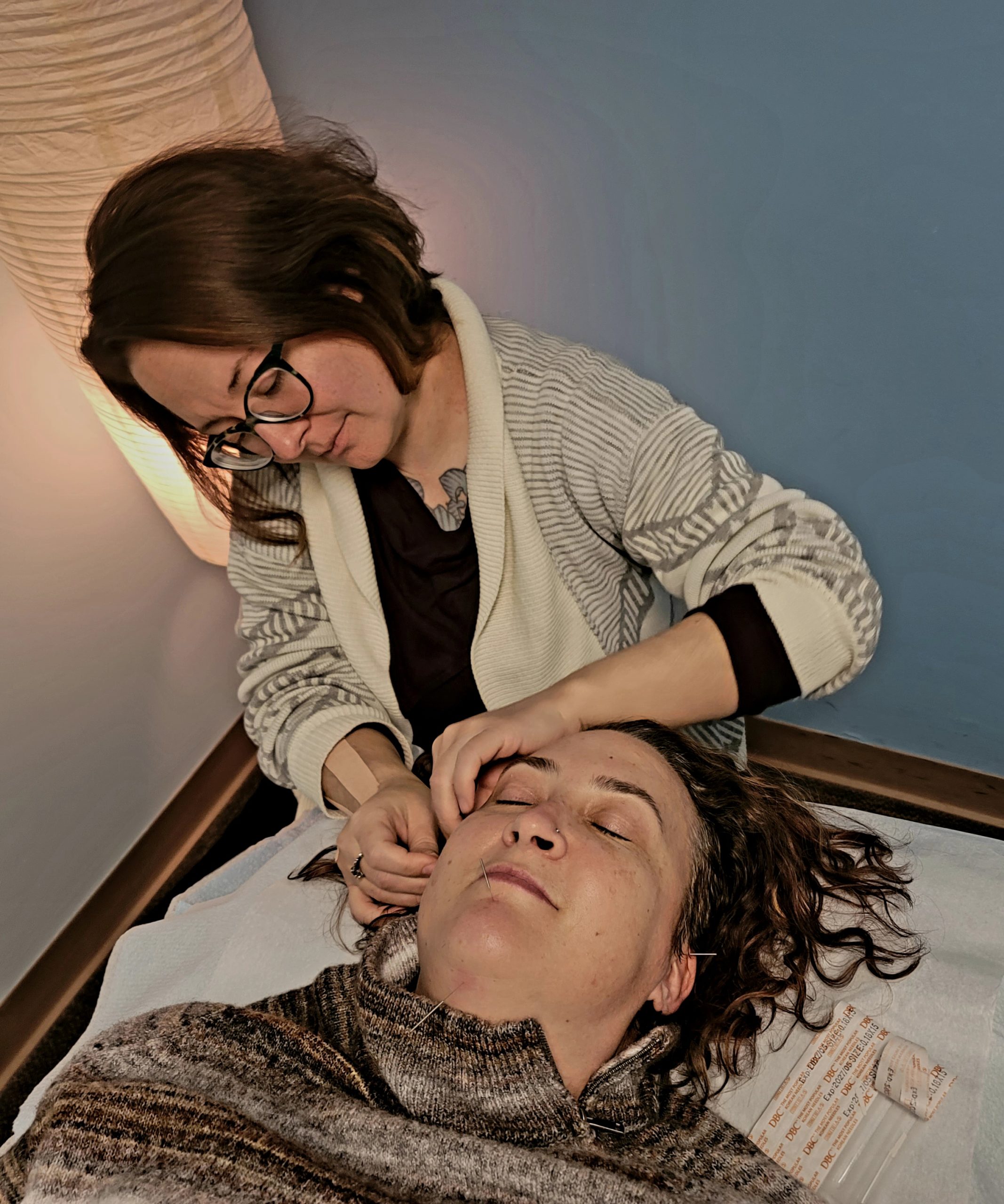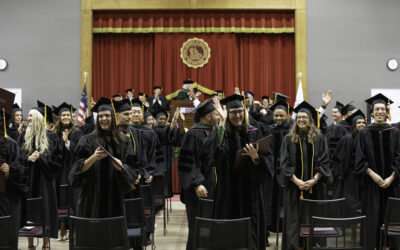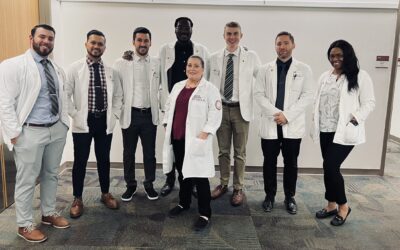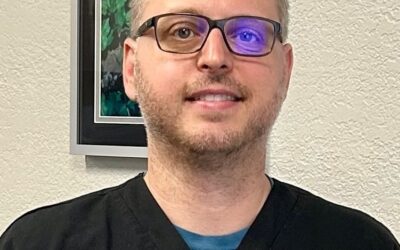NUHS Graduate Sarah Montesa, DC, MSAc., (‘20, ‘19) is making strides toward bringing acupuncture to more end-of-life care patients. As a certified provider of end-of-life care from the National Association of Hospice and Palliative Care Acupuncturists, Dr. Montesa has been providing in-home acupuncture services to help palliative care patients feel more comfortable and obtain a better quality of life. She has also started to work with local hospice organizations with the goal of forming partnerships and finding ways to integrate acupuncture and tuina into their models of care.

NUHS Graduate Sarah Montesa, DC, MSAc., (‘20, ‘19), provides acupuncture to a patient, Jen Dexheimer.
Acupuncture can have several benefits to those in palliative and hospice care. Dr. Montesa currently uses acupuncture to treat nausea, pain, breathing trouble, anxiety and stress. Unlike some pain medications, acupuncture doesn’t interact with other drugs, make a patient sleepy or affect them cognitively. Instead, it allows them to remain alert and spend more quality time with their family.
While hospice care does not have the goal of trying to cure a patient, there’s still a lot that can be done to make a patient as comfortable as possible. In addition to acupuncture, manual therapy, and other soft tissue work like tuina can help with sleep. Chinese herbal medicine formulas can also improve skin issues. According to Montesa, patients in palliative care sometimes experience skin irritation, lesions, pain, and stiffness due to decreased blood supply.
“This type of care is all about helping patients live the best life possible no matter what they’re going through,” Dr. Montesa said.
Dr. Montesa is no stranger to being around death. From an early age, she had multiple relatives staying in her home to receive end-of-life care. The time she had with her grandmother while in eighth grade was particularly memorable. Although her grandmother was nearing her final weeks, Dr. Montesa has fond memories. After ending regular treatments like dialysis, Dr. Montesa started to see a positive change in her grandmother.
“She knew she was dying but she started to smile again, she became herself again,” Dr. Montesa said. “I want to be part of that aspect of people’s lives.”
In addition to treating patients, Dr. Montesa also helps provide support to families. She encourages relatives to start a dialogue about end-of-life care and to find out what patients want for themselves.
“Because there are lots of emotions involved at the end of life, it’s important to know a patient’s wishes, so that they are not put through unnecessary procedures,” Dr. Montesa said. “Having a plan helps make things easier on everyone.”
Dr. Montesa, who operates Family Health & Wellness Solutions with a colleague, said her time at NUHS really helped prepare her for providing this type of care.
Even before she graduated, Dr. Montesa was able to gain experience treating pain as part of a NUHS Acupuncture rotation at Stroger Hospital in Chicago. While there, Dr. Montesa encountered many patients experiencing chronic pain who needed another option for managing their conditions. Pain medications, especially when taken for a long time, often have negative side effects.
Overall, Dr. Montesa said the wide scope of training she received at NUHS gave her the foundational knowledge she needed to collaborate with other health care practitioners and provide the best care possible. She also attributed her success to various faculty members who served as mentors and encouraged her to explore different fields.
“Sometimes you encounter patients going through difficult things. But I realized, if I just provide them with care, consideration, and love, then I’ll end up making a positive change in their lives one way or another,” she said.




0 Comments